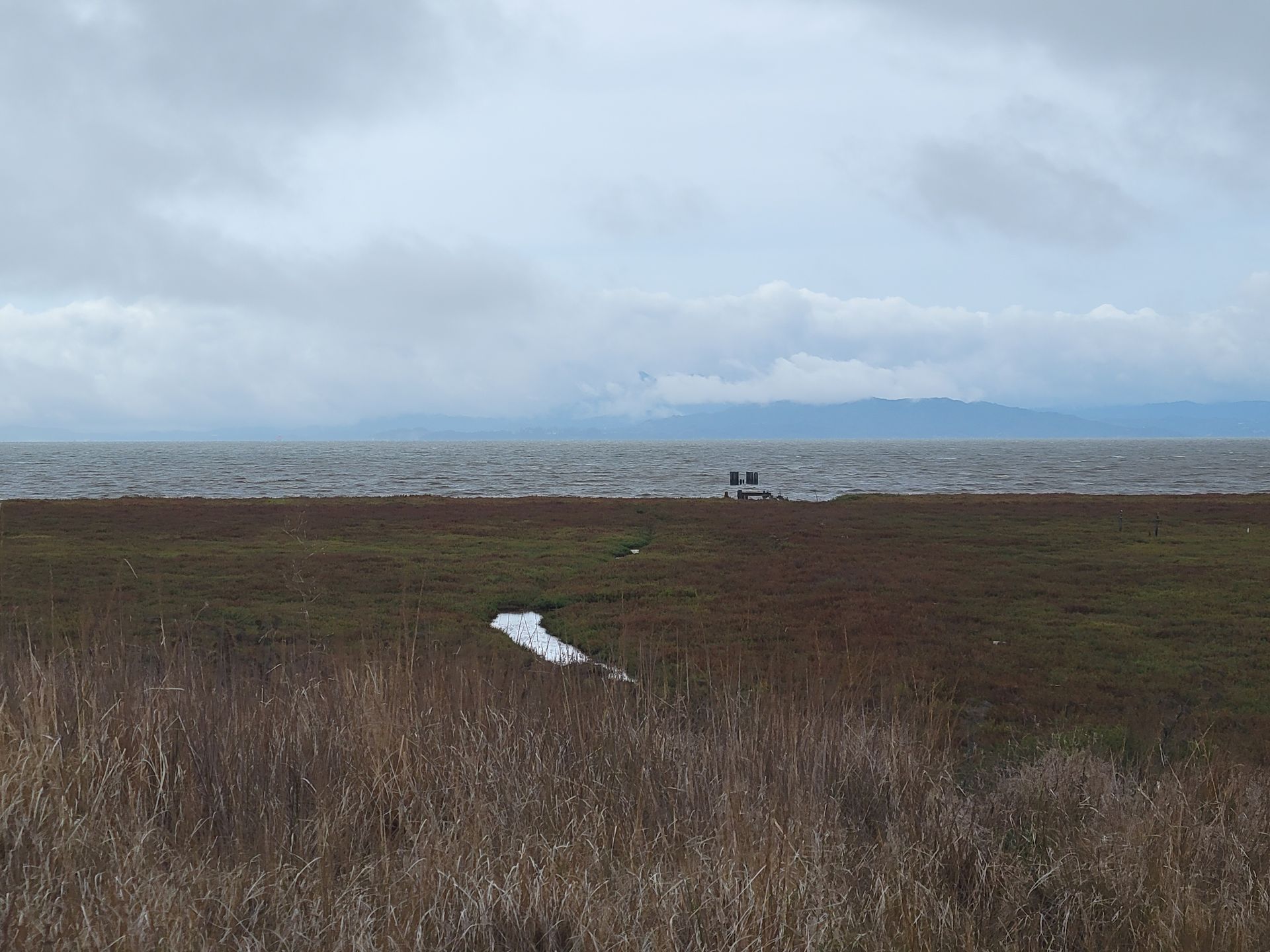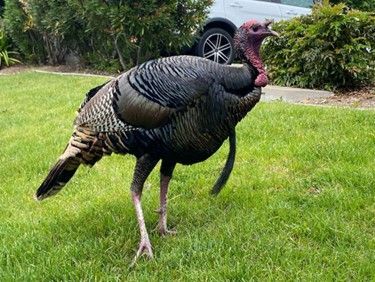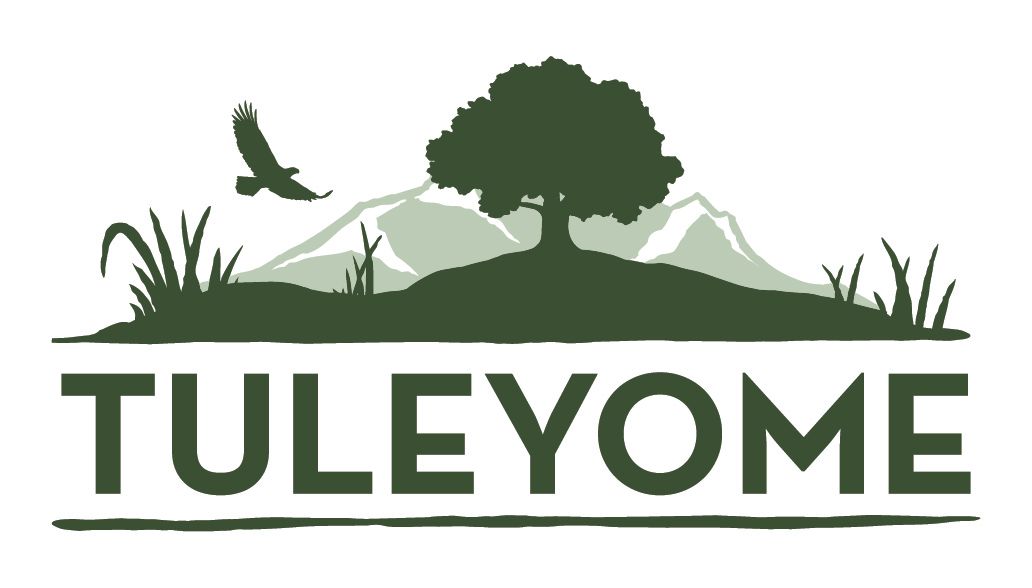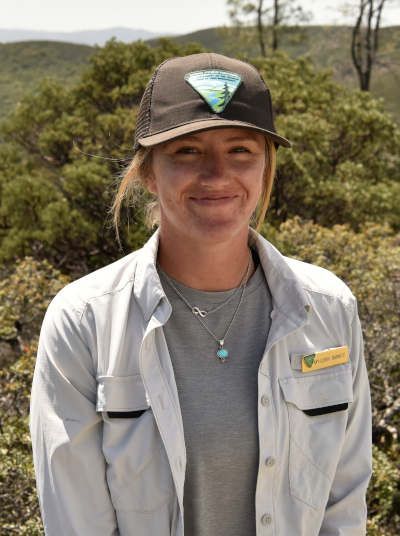Women's Equality Day 2025 - Kay-Leigh Barnitz
The 19th Amendment to the Constitution - granting women the right to vote - was certified on August 26, 1920. In commemoration of this, in 1973 Congress designated August 26 as "Women's Equality Day" to remind us of the heroic women who advanced the Women's Suffrage movement. In recognition of Women's Equality Day, Tuleyome is highlighting three women who are dedicated to our public lands: Kay-Leigh Barnitz (Bureau of Land Management), Jennifer Onufer (Bureau of Reclamation), and Laura Leidner (US Forest Service). Hear about Kay-Leigh's journey below and learn about Jennifer here and Laura here.
Thank you, Kay-Leigh, for your passion and dedication to our public lands!
I received my Bachelor of Science degree from New Mexico State University. My focus area was wildlife habitat management, rangeland science and I minored in biology. Prior to graduation I was offered a Direct Hire Authority – Resource Assistance Internship (DHA-RAI) from the BLM Las Cruces District Office. This internship lasted 3 months and awarded me non-competitive hiring status with the Department of the Interior. When I graduated, I had already been offered a job with the Ukiah Field Office as a wildlife biologist.
I started with the BLM in Las Cruces New Mexico as an “Environmental Reclamation Specialist” which was just a fancy title for picking up illegal trash dump sites. It wasn’t much but it was an opportunity to get my foot in the door. I took pride in cleaning up public lands, and I believe that showed. Shortly thereafter I was offered a job on a contract with the New Mexico Associate of Conservation Districts as a Technical Assistant for the BLM LCDO and I worked there for 3 years as a part time employee while going to school. I was able to help with all Natural Resources work in the office and in the field including grazing bills, grazing allotment inspections, endangered species conservation, and more. This position gave me a great interdisciplinary background and set me up for success later in my career.
My grandfather was a Forest Service Ranger and my uncle was a wildlife biologist for the BLM. I always knew I wanted to be a wildlife biologist, but I wasn’t sure how to make it happen and I didn’t much mind what agency. The DHA-RAI program allowed me the opportunity to pursue a position with the BLM.
My childhood was spent outside. We ran to the hills to escape the modern conveniences of society and connect with the landscape and public lands. My dad, brothers and I spent many Sundays at “church” in the mountains. My family has always been connected to public lands and once I realized I could make a hobby or passion of mine a career, I followed the paths to make that a reality.
My grandfather, my uncle and my father are my biggest inspirations. They have worked harder than anyone I’ve met to do the right thing for the land and people. Some of my earliest memories of my grandfather involve him sharing the scientific names of the native plants he grew in his yard. Since then, I’ve loved learning the scientific name of every plant I see. In college my uncle raised federally threatened Chiracahua leopard frogs in his backyard and I’d help release them on BLM managed lands. My father raised me and my two brothers as a single parent, I don’t know how he managed but I think we all turned out pretty dang good. I strive every day to remember their words, their work ethic and advice.
I am most proud of my work with partners to achieve things I never thought possible on my own. When I started here in Ukiah I was the only natural resources employee with a lot of natural resource issues (weeds, degrading riparian systems, etc). The community that I’ve fostered through collaboration with partners is rewarding especially when it lends to on the ground action and change. The things I’ve achieved in Ukiah would’ve never been possible without partnerships.
One of my favorite memories is the day we started construction of the Garcia River Estuary Salmonid Habitat Enhancement Project with The Nature Conservancy and the Stornetta Ranch. I’d worked for 5 years to see the day. It was rewarding to finally see the fruits of all the hours spent at meetings and planning. Now salmonid species like Coho salmon have thrive in the estuary since construction was completed.
I have had an internal hurdle I have to work to overcome every day. I doubt myself and get imposter syndrome. Like, who put me in charge? However, it is ok to not know everything, to be imperfect. When you foster a community of people with expertise and knowledge you can reach out and lean on them for help.
My grandfather always said, “You were fit with two ears and one mouth, therefore you should listen twice as often as you speak.” When starting my career I listened to everyone who would take the time to share with me their experiences, their work, and their ideas for the landscape and future. It is important to hear everyone’s perspective even those you may not agree with. You can learn something from everyone in every conversation if your only goal is to listen. This doesn’t mean you shouldn’t speak up when you feel you should. Trust yourself, your knowledge and expertise. Your voice matters.
RECENT ARTICLES







